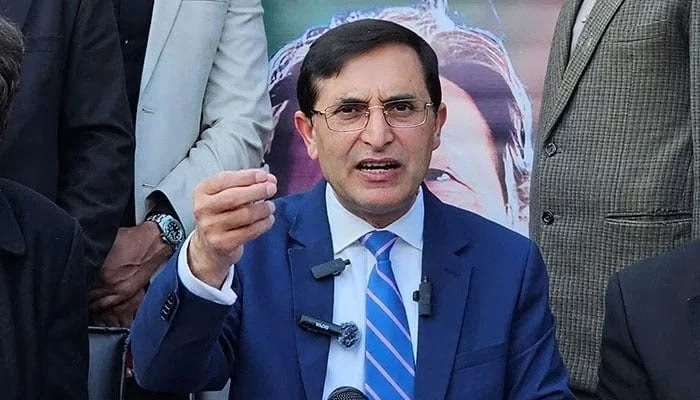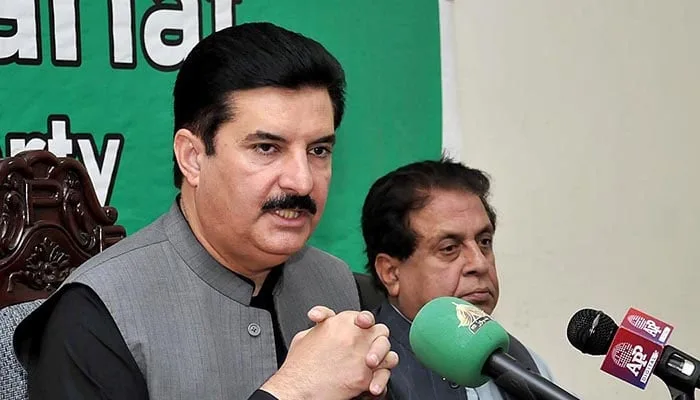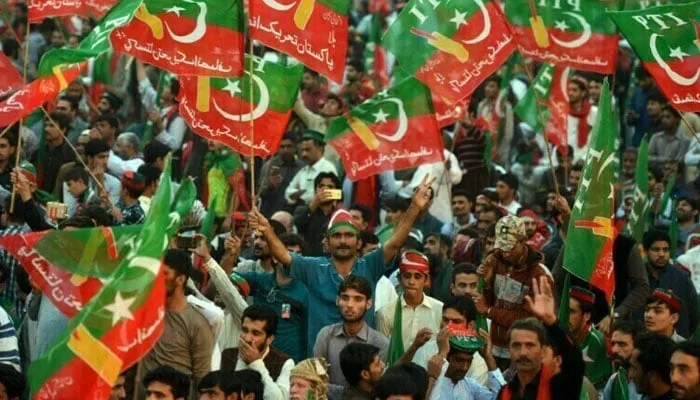During an exclusive conversation with Geo News, Barrister Gohar revealed that while Imran Khan has confirmed writing a letter to the Chief of Army Staff (COAS), he himself has not yet read or seen the letter. This statement has sparked curiosity about the contents and intent behind the letter, which could have significant political implications.
Imran Khan’s Letter to the Army Chief – A New Political Development
Former Prime Minister Imran Khan, who remains at the center of Pakistan’s political landscape, recently wrote a six-point letter to the Army Chief. This move follows his previous correspondence with the Chief Justice of Pakistan, indicating his continued efforts to communicate with key state institutions.
According to Barrister Gohar, Imran Khan personally read out the letter’s contents, emphasizing that the Pakistan Army has made great sacrifices for the nation. PTI is open to dialogue, and if a response is received, they will positively engage with it.
No Secret Meetings with the Military Leadership: Barrister Gohar
When asked whether PTI leaders were in direct contact with the military leadership, Barrister Gohar denied any secret meetings. He clarified that there was only one official meeting regarding public order, and beyond that, no further discussions had taken place with the military leadership.
This clarification comes at a time when speculation is high regarding PTI’s relationship with the establishment, as political tensions continue to rise ahead of the upcoming elections.
What’s in Imran Khan’s Six-Point Letter?
While the full text of Imran Khan’s letter has not been officially disclosed, sources indicate that it addresses key national concerns. The six points likely include:
- Political Stability – A call for fair and transparent elections to restore democratic order.
- Rule of Law – Emphasizing the need to uphold the Constitution and protect fundamental rights.
- Civil-Military Relations – Advocating for a balanced working relationship between democratic institutions and the military.
- Judicial Independence – Ensuring that legal proceedings remain impartial and free from external influence.
- Human Rights & Freedoms – Raising concerns over political detentions and restrictions on free speech.
- Economic Revival – Stressing the importance of stability and reforms to boost Pakistan’s struggling economy.
If the Army Chief responds to this letter, it could mark a significant shift in Pakistan’s political landscape, possibly opening doors for dialogue or reshaping PTI’s future strategy.
PTI’s Past Communications with State Institutions
This is not the first time Imran Khan has reached out to key institutions. Previously, he wrote a letter to the Chief Justice of Pakistan, urging judicial intervention to ensure free and fair elections. These efforts highlight PTI’s strategy of engaging with state pillars, despite facing legal challenges and political opposition.
Barrister Gohar’s statement underscores PTI’s readiness to engage in constructive dialogue, but it remains to be seen whether this approach will yield any significant political developments.
Will the Army Respond? The Uncertainty Continues
So far, there has been no official response from the Army Chief regarding Imran Khan’s letter. Given the delicate political situation, any acknowledgment or rejection of this letter could reshape the current power dynamics in Pakistan.
Meanwhile, PTI leaders continue to emphasize their commitment to democratic principles, stating that they believe in institutional cooperation rather than confrontation.
What’s Next for PTI and Imran Khan?
As Pakistan’s political climate remains tense, all eyes are now on how the military and judiciary respond to Imran Khan’s outreach efforts.
- If the military engages in dialogue, it could pave the way for political negotiations and possibly a more stable transition to elections.
- If the letter is ignored, PTI may adopt a more aggressive stance, further escalating tensions.
With elections approaching, PTI’s leadership is keen on regaining political momentum, and Imran Khan’s direct communication with the state institutions is part of that larger strategy.
PTI’s position on political dialogue and institutional cooperation remains clear but uncertain in terms of outcomes. Barrister Gohar’s remarks indicate that PTI is open to engagement, but whether the Army Chief responds or not will determine the next phase of Pakistan’s political scenario.
PTI supporters and political analysts are waiting to see if this letter will bridge the communication gap between PTI and the establishment or further deepen political divisions.



